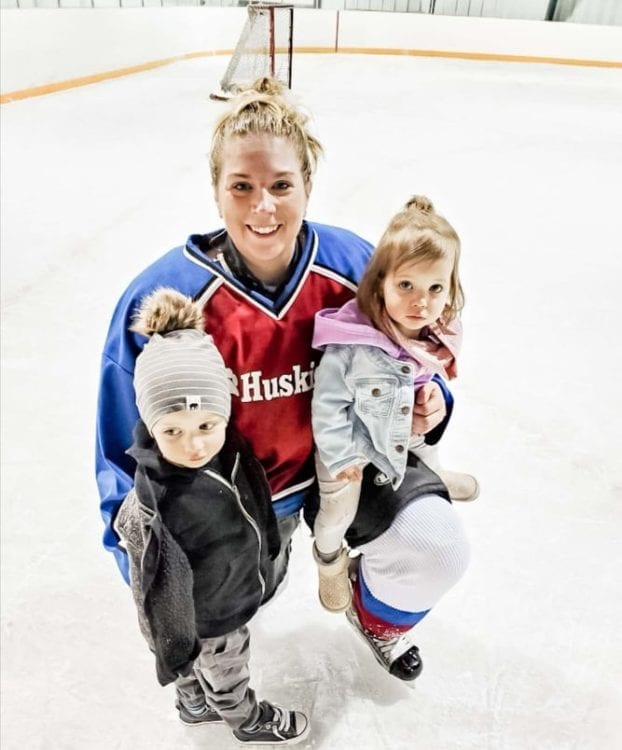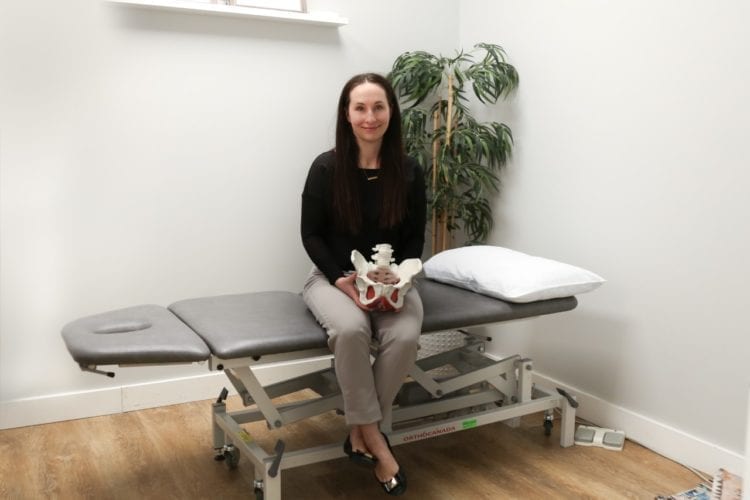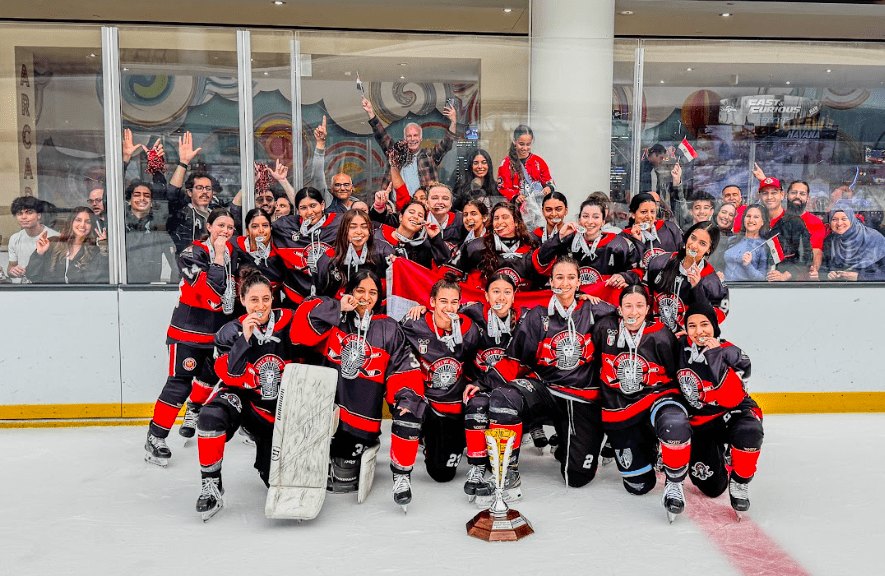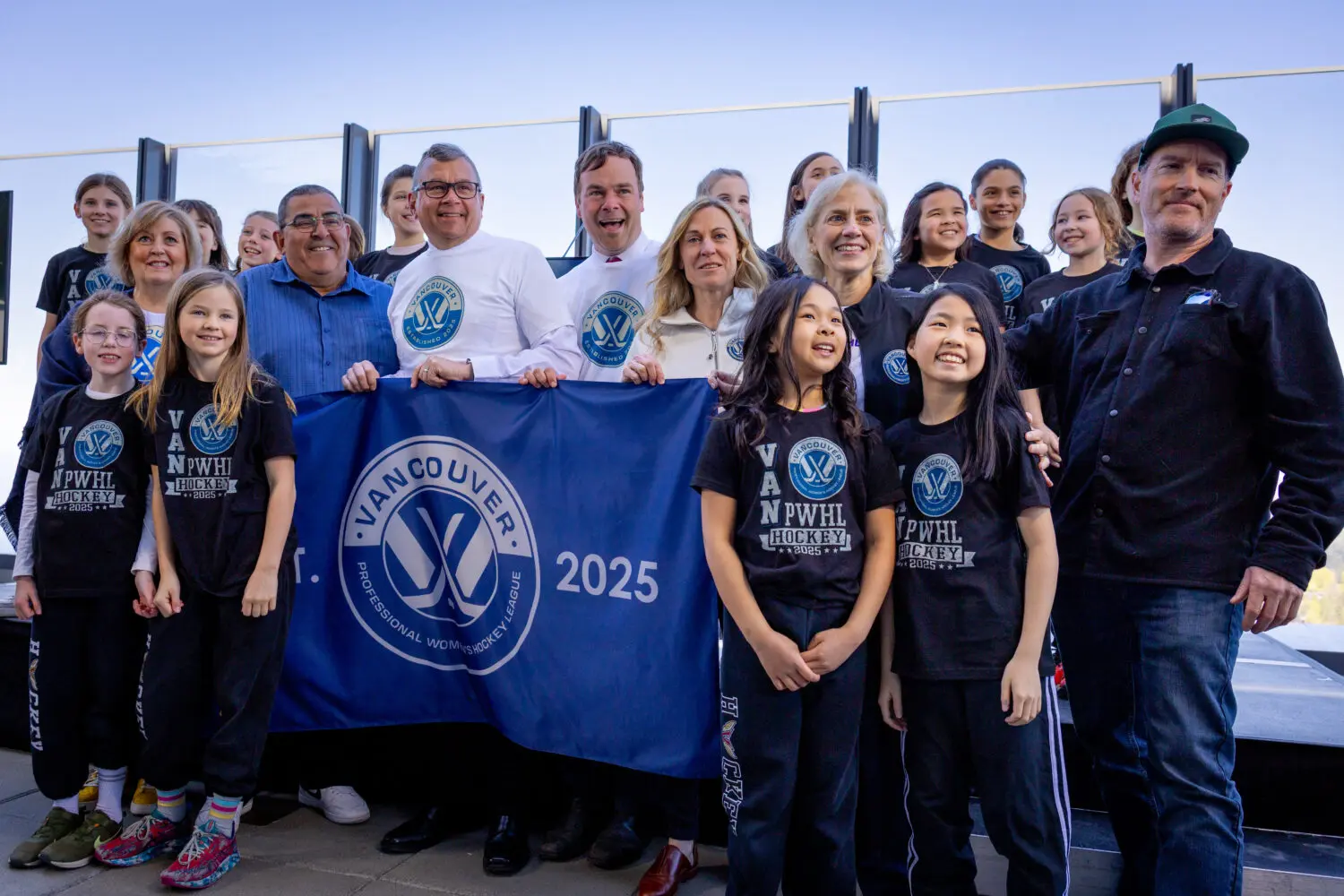As hockey players, we are aware of the strength and power our bodies possess. We take great pride in our fierce quads and glutes because they fuel our quick movements and speed on the ice. Our toned arms and solid core allow us to unleash wicked shots. We love our bodies and their ability to transform into efficient hockey machines.
As female athletes, pregnancy is uniquely ours to experience. It pulls us away from the ice temporarily. We bench ourselves and witness the complete transformation of our bodies once again. Having been fortunate to carry and deliver three babies to full term, I was in awe of what my body was capable of each time. Talk about strength, power and athleticism!
The process really is beautiful but it doesn’t always feel that way. Despite knowing what to expect, I never found the prenatal and postpartum phases got any easier with each child. Every pregnancy, delivery and recovery is different and those differences can feel monumental. Becoming a mom is a game changer.
According to Amy Rabe (BScPN. RPN.), a psychiatric nurse, with specific training in maternal mental health and psychotherapy, “One in seven mothers experience serious depression and/or anxiety during pregnancy or postpartum. Mental health issues can also go beyond this and include post traumatic stress disorder (PTSD) depending on what you experienced.”
Not only is your body undergoing massive waves of change but your brain is too. Sadly, despite the statistics, prenatal and perinatal mental health is still not widely talked about. This leaves many women battling for their mental health alone, which is an isolating and scary place to be.
“It’s important for women to come together and normalize perinatal mental health and the struggles that women may be facing,” says Rabe. “No mother should feel silenced by stigma or myths about perinatal mental health.”
 Amy Rabe with her two children on the ice
Amy Rabe with her two children on the ice
Finding positive support is key and this is where the game we love can help. Through companionship and shared experience, our hockey teammates can provide us with incredible support as we navigate the childbearing and rearing stages of life. Rabe is a lifelong hockey player and knows the healing power of stepping back into a changing room surrounded by familiar faces.
“Getting to strap on my skates and focus on the game and my teammates helped remind me of the part of myself that was being neglected,” says Rabe. “It’s so important to hold on to your identity beyond being a mother. Being with a group of women and other mothers who’ve experienced the same thing provided reassurance, knowledge and support.”
Many of Rabe’s teammates on the Huskies’ Hockey Team (including myself) share this sentiment. To get more feedback on the topic, I posted on our team’s Facebook page asking what the biggest challenges were that they faced getting back to the rink after having babies. “Mom-guilt”, was a reccurring theme in many comments shared.
“I felt hugely guilty and selfish for taking the day/evening away to do something for myself and would find myself rushing home after, even though my baby would be in bed,” says Huskies team member, Mariel Thiessen. “I always felt so stressed out to be gone any longer than necessary.”
Other comments centered around the fact that after a baby, the body just feels different on the ice. It doesn’t move the same anymore.
“I really found it tough on the ice because I couldn’t do what I used to be able to do both physically and mentally,” says Huskies team member, Mel Thompson. “I felt like I was always a step behind. Completely recovering from pregnancy and childbirth takes a while and the sleep deprivation mixed with breastfeeding mixed with mom brain just made me feel so dumb on the ice.”
While many of us struggle to admit or accept the reality, carrying and birthing children does change our bodies. When I look in the mirror today, the body looking back at me is not the same as it was 10 years ago. Helping women learn to embrace and adapt to their changing bodies is something Tryna DeGagne has built her physiotherapy practice around.
 Tryna DeGagne sitting in her physiotherapy practice
Tryna DeGagne sitting in her physiotherapy practice
DeGagne (BMR. PT. BSc.) has training in pelvic health and over a decade of experience. She’s passionate about helping women remain active during pregnancy and progressively returning to activity after delivering their baby and has extensive training in perinatal physiotherapy.
“The biggest things I see in the 25 to 40 age range are urinary leakage, leakage during exercise, pelvis and hip pain and whole body injuries that are persistent or reoccurring,” says DeGagne.”Women want to learn how to safely stay active during pregnancy and how to return to activity safely after the baby comes.”
A powerful message DeGagne shares that we ALL need to hear is that common does not equate to normal. Just because an experience is common (like leakage), that does not mean that it is your new normal. There are things you can do to address what is happening to your body. There is a way to get back to feeling great on (and off) the ice!
DeGagne is a huge advocate of proactive treatment. The following is a five-step approach she supports:
- Visit a physiotherapist. Look to include pelvic health physiotherapy in your prenatal healthcare plan at least once a trimester. Internal exams are not a requirement. Just getting more information is helpful!
- Learn how to breathe and move again. After your body conquers the intensive and amazing experience of giving birth, you need to reconnect with your body and learn how to just breathe and move again. Look to find moments of calmness to listen to your body.
- Build your strength. Work on specific non-impact exercises to build your core. This helps you build a great foundation for your entire body to build upon.
- Prepare for impact. Start with simple impact movements to test your abilities. Before jumping back on the ice, do some activities at home like lateral shuffling or jumping side to side to mimic the act of stopping/starting on the ice.
- Get back to impact activity! It’s time to get back on the ice! At this point, you should have a good sense of what your body can handle. Gear up and hit the ice for a nice skate! Have some teammates join to pass the puck around or try some simple drills. If possible, avoid jumping right back into game play. If you do start playing games, really listen to your body and play in fewer shifts. Your teammates have your back and can cover your shift while you recover!
According to DeGagne, we’re all athletes in motherhood. I love this and couldn’t agree more! Successful athletes are strong of mind and in body. This is what we need to remind ourselves after we become moms. Our care and well-being is just as important as the new little human in our arms. We need to be kind to ourselves and take comfort in the support others can provide us with.
It takes a team to win hockey games. It takes a team to get you back on the ice too. And you WILL get there.
* Note information shared above is not meant to replace proper medical advice and attention. Some online support resources include:
https://www.postpartum.net/ https://www.researchgate.net/publication/335928424_Returning_to_running_postnatal_-_guidelines_for_medical_health_and_fitness_professionals_managing_this_population
[adrotate group=”1″]
Related Articles
Categories
Recent Posts
[adrotate group=”2″]











